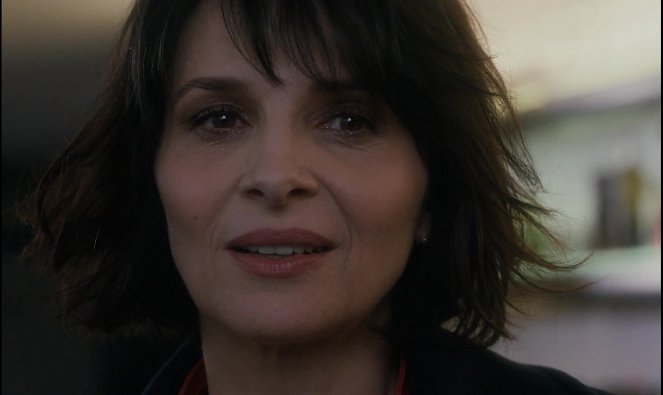Directed by:
Claire DenisCinematography:
Agnès GodardComposer:
Stuart A. StaplesCast:
Juliette Binoche, Gérard Depardieu, Valeria Bruni Tedeschi, Nicolas Duvauchelle, Josiane Balasko, Xavier Beauvois, Alex Descas, Bruno Podalydès, Paul Blain (more)VOD (2)
Plots(1)
Two luminaries of French cinema, Claire Denis and Juliette Binoche, unite for the first time in this piercing look at the elusive nature of true love, and the extent to which we are willing to betray ourselves in its pursuit. In a richly layered performance, Binoche plays Isabelle, a successful painter in Paris whose apparent independence belies what she desires most: real romantic fulfillment. Isabelle reveals deep wells of yearning, vulnerability, and resilience as she tumbles into relationships with all the wrong men. Shot in burnished tones by Denis’s longtime collaborator Agnès Godard and featuring a mischievous appearance by Gérard Depardieu, Let the Sunshine In finds bleak humor in a cutting truth: we are all, no matter our age, fools for love. (Criterion)
(more)Videos (2)
Reviews (2)
When it comes to love, words can be just as unsatisfying as the climax-less sex with which Claire Denis’s new film begins (and which is not the only kind of sex found here). Following the example of Barthes’s A Lover’s Discourse: Fragments, we find out why the protagonist’s emotional and love life is unsatisfying from an episodic series of her encounters with both familiar and newfound lovers. They differ in appearance, intellect and class affiliation. Some of them are not self-assured at all, others are overconfident. Isabelle is an attractive woman who draws the attention of men with her short skirts and tall high-heeled boots. However, few of her partners are able to correctly decode the signals that she sends as an expression of need for understanding rather than for unsatiated lust. However, Isabelle herself doesn’t know exactly what she wants and, in some ways, seems as thoughtless as her partners. It’s no wonder she can’t maintain her happiness even when she meets a man who doesn’t push his ego (like a dung beetle pushing a ball) in front of himself and with whom she apparently feels good. It seems that Isabelle can only be honest with people from whom she receives no promises and to whom she is not afraid to expose herself completely, at least with words. When asked a polite question by a man she regularly runs into at the fish shop, she truthfully replies that she is not well. Similarly, she is not afraid to tell a taxi driver that she is unhappy. The cyclical nature of the situation in which she finds herself and which stems from the fact that she constantly seeks validation from others (who doesn’t?) is humorously summed up in the final conversation with the clairvoyant, who turns out to be another egoist acting only in his own interest. The entire film follows the protagonist’s failed attempts at successful communication in which the partners speak the same language and are able to tell each other (even without words) what bothers them, what they like, what they desire, what they want from each other. Denis maintains a slightly ironic distance not only from the relationship problems of the Parisian bohemians, but also from her protagonist, who confides to a friend that she stayed with a possessive banker mainly because she was turned on by the idea of sleeping with an “old scumbag”, thus basically blending fact and fantasy. But a relationship based on an illusion is not sustainable in the long run. Sooner or later, there must be an awakening, expressed in the bar scene by the slow movement of the camera away from the two actors (contrasted with the briskly flowing dialogue based on the conscious acceptance of a certain role, shot by panning between the two actors instead of using the traditional shot/counter-shot technique). Let the Sunshine In is not a typical French comedy with broadly accessible humour that wraps its ideas up in nice phrases, but a maximally unobtrusive, beautifully sad comedy of manners (with a touch of class satire) in which (as in the discourse of lovers) every gesture, every word and every pause bears meaning. It is thus important that the actors, especially the amazing Juliette Binoche, are able to sum up a long list of reasons for their contempt or the multi-year history of one interrupted stint of living together with an almost imperceptible change of expression or with the way they say certain words. Thanks to the accuracy and matter-of-factness with which it depicts the various phases of coming together and breaking up and how relationships can be both fulfilling and frustrating, Let the Sunshine In is one of the best films about love and communication.
()
(less)
(more)
Even if, in the end, the main character did not turn out to be a desperate mature woman without
knowledge of her own personality and the ability to assess the benefits/impact of people around her
on her life, this film would remain an uninteresting conversation drama with trivial thoughts and
reflections on fumbling through relationships (and we’d want to see it in the cinema only in an
original and well-plotted package, which is the complete opposite of this movie).
()


